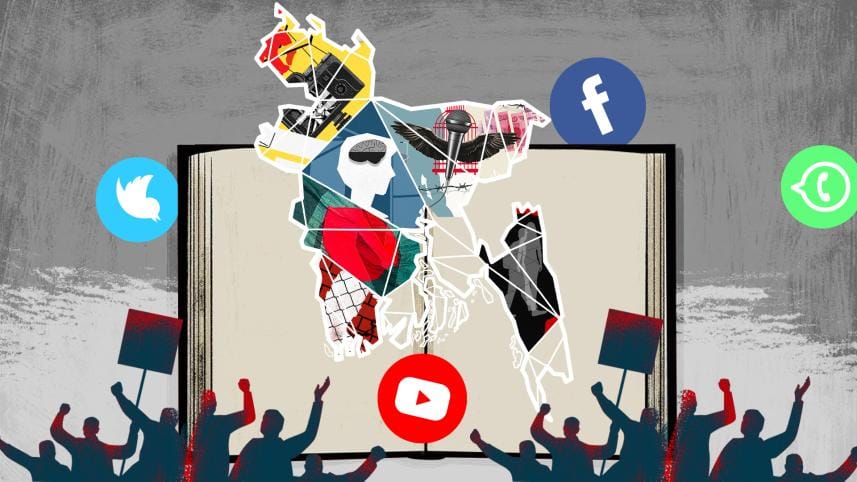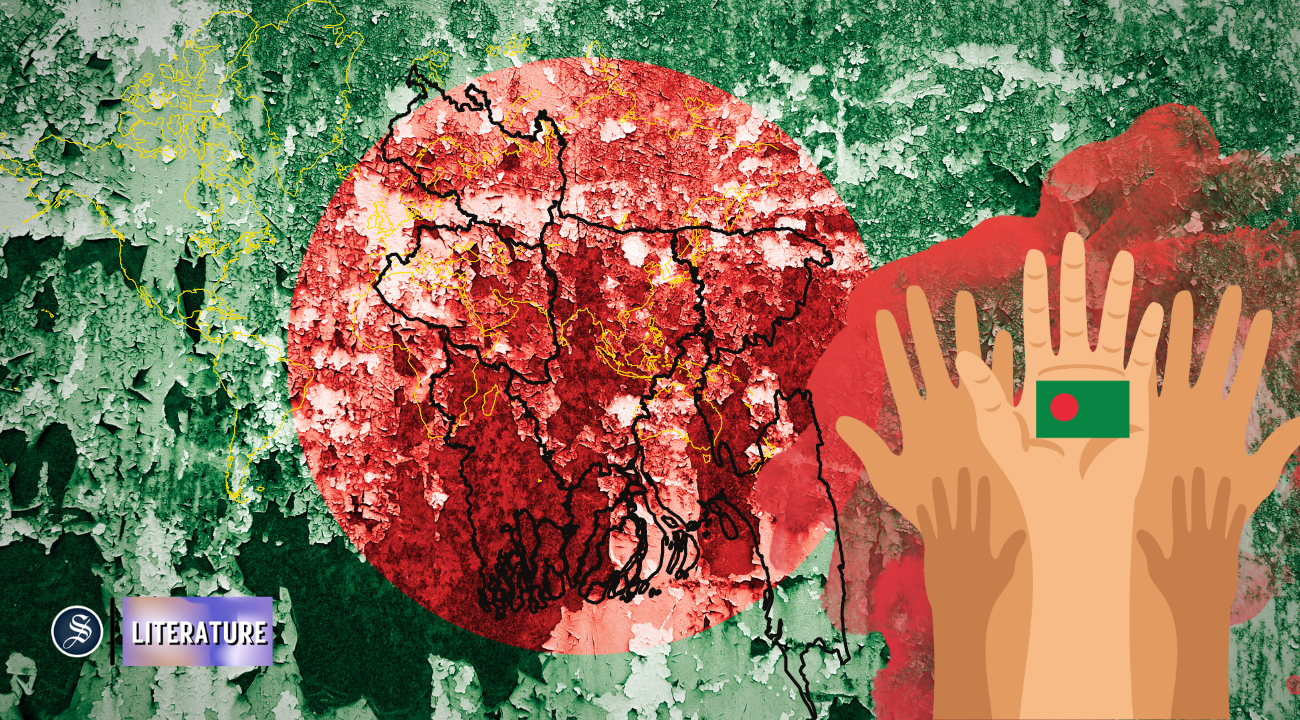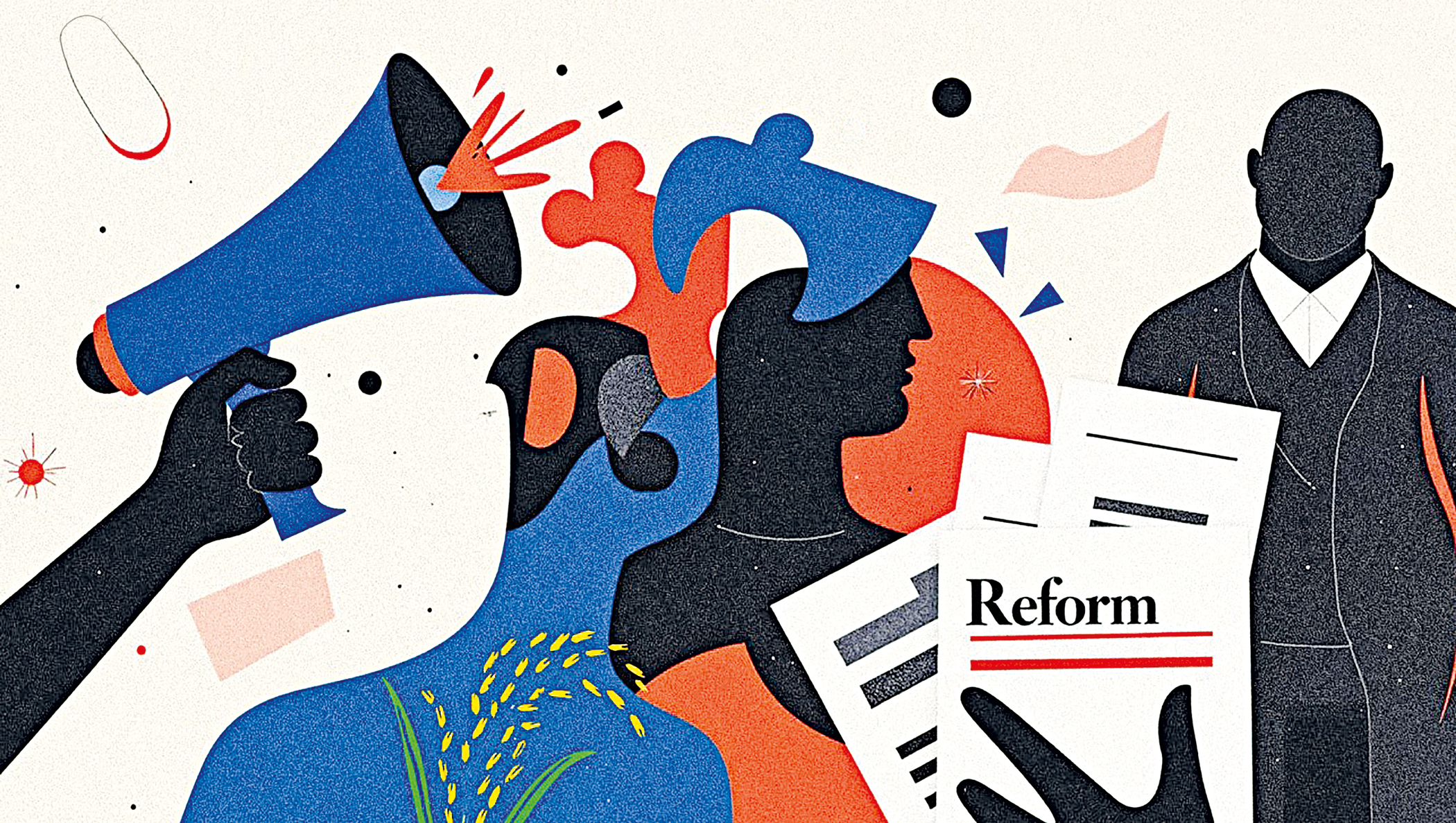The politics of narrative: How stories shape reality in Bangladesh

Politics everywhere runs on stories, but in Bangladesh, the "politics of narrative" has been especially powerful. Competing tales of identity, progress, and legitimacy form the invisible architecture of political life, shaping not only how events are remembered but also how they are lived.
Walter Fisher's narrative paradigm captures this dynamic well: humans are storytellers who make sense of the world through coherent narratives rather than abstract arguments. Narratives are symbolic actions—words and deeds with sequence and meaning—that persuade, unite, or divide. Benedict Anderson likewise argued that nations are "imagined communities," built from shared stories that bind strangers into a common identity. Wars, revolutions, and political struggles become meaningful only when translated into narratives that enter collective memory.
The defining story for Bangladesh is, of course, the 1971 Liberation War. Like a literary classic that spawns endless reinterpretations, this momentous episode provides a key foundation for political narratives. Every party and leader must position themselves in relation to it, either as its "legitimate heirs" or as "challengers" to its meaning.
The Awami League, under Sheikh Hasina, cast itself as the guardian of the "true" liberation narrative. This framing turned rivals into something more sinister than competitors: Pakistani "collaborators" betraying the national cause. Legitimacy, too, was genealogical—Awami League presented itself as the nation's founding force, with its politics rooted in a legacy of the resistance movement passed down through generations.
The Bangladesh Nationalist Party and other opposition groups have tried to revise this story. They emphasise contributions beyond party politics and highlight neglected voices in the independence struggle. In doing so, they frame themselves as revisionist historians, expanding the narrative beyond the Awami League's version and insisting that the nation's birth was a collective achievement.
Once, state media and newspapers largely controlled these stories. Today, social media has turned every citizen into a potential storyteller. Twitter (now X), Facebook, and YouTube have become democratic spaces with competing voices jostling for attention.
This digital turn has fragmented the national narrative. A handful of outlets once shaped public opinion; now millions of micro-narratives coexist in cacophony. On the one hand, this allows ordinary citizens to challenge official accounts. On the other hand, it opens the floodgates to conspiracy theories and misinformation.
Recent protests illustrate this shift. The 2018 student road safety movement, sparked by fatal traffic accidents, quickly became a broader story about governance failure and generational frustration. Protesters framed their activism as a cry for accountability in a system that disregards young lives. Social media amplified their message, turning a local tragedy into a national reckoning. Similarly, the 2024 anti-discrimination demonstrations revealed deep anger against authoritarian practices, with digital platforms magnifying grassroots voices and forcing the regime to confront narratives it could not control.
Narrative politics also shape Bangladesh's international image. The Rohingya refugee crisis is a prime example. The government framed Bangladesh as a humanitarian outpost, a small, resource-strapped nation shouldering an immense global burden. This story positioned the country as morally upright before international audiences, a strategy that helped attract foreign aid and soften criticism of its own human rights record.
Domestically, the narrative stressed Bangladeshi generosity and the need for international burden-sharing. For Myanmar, it was a way of pressuring its government to accept responsibility. Yet despite its rhetorical power, the narrative revealed limits. Storytelling alone could not substitute for concrete solutions, and when global sympathy failed to translate into sufficient support, Bangladesh was left caught between its humanitarian commitments and its internal political constraints.
Economic growth has provided another fertile ground for narrative politics. Successive governments have told a triumphant story of transformation—from the infamous "basket case" to an overstated "development miracle." Statistical achievements such as poverty reduction, infrastructure expansion, and GDP growth became cinematic highlights in a carefully edited national film.
This was a case of "selective visibility." Success stories were magnified, while structural issues—corruption, inequality, environmental degradation—remained in the shadows. Opposition groups present alternative narratives: that growth disproportionately benefits the powerful and wealthy, that the poor face rising costs and stagnant opportunities, and that economic miracles often mask fragile foundations. The same numbers, framed differently, convey clashing stories of national progress.
Bangladesh's experience reveals a paradox at the heart of narrative politics. The more tightly governments try to regulate national stories, the more they expose their fragility. Laws restricting press freedom, regulations on social media, and penalties for "false" information signal not narrative strength but weakness. Official stories require constant policing because they rest on contested ground.
Political narratives are thus both weapons and vulnerabilities. A compelling story gives leaders legitimacy, but it also creates standards they may fail to meet. The Awami League's liberation-centred narrative, for example, elevates expectations of living up to the ideals of 1971. When the party appeared authoritarian or self-serving, critics accused it of betraying the very principles it claimed to embody.
What emerges from Bangladesh's case is that narratives shape and influence political reality. Politicians do not simply describe the world; they help create it through stories that give meaning to events. Elections, therefore, are not just contests of policies or personalities but battles between rival visions of national identity. Victory often goes not to the candidate with the best plan but to the one who tells the most resonant story of where Bangladesh has been and where it should go.
As the country evolves, new narrators will rise. The younger generation, globally connected and digitally fluent, is already crafting fresh stories that depart from older party-centric frames. Their narratives are less about the bloodlines of 1971 and more about governance, opportunity, and dignity in the present. In this ongoing project of framing nationhood, Bangladeshis remain both authors and readers of the stories that define what it means to belong.
After all, a nation is a story in motion—retold, contested, and rewritten with each generation.
Dr Habib Zafarullah is adjunct professor of public policy at the University of New England, Australia, former professor of public administration at the University of Dhaka and founding president of the South Asian Network for Public Administration.
Views expressed in this article are the author's own.
Follow The Daily Star Opinion on Facebook for the latest opinions, commentaries and analyses by experts and professionals. To contribute your article or letter to The Daily Star Opinion, see our guidelines for submission.




 For all latest news, follow The Daily Star's Google News channel.
For all latest news, follow The Daily Star's Google News channel. 


Comments